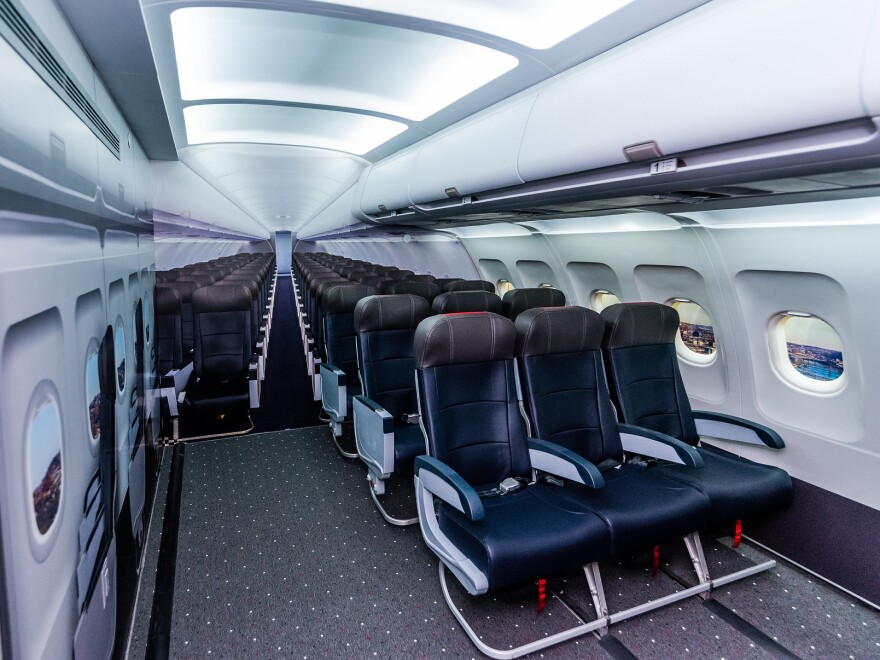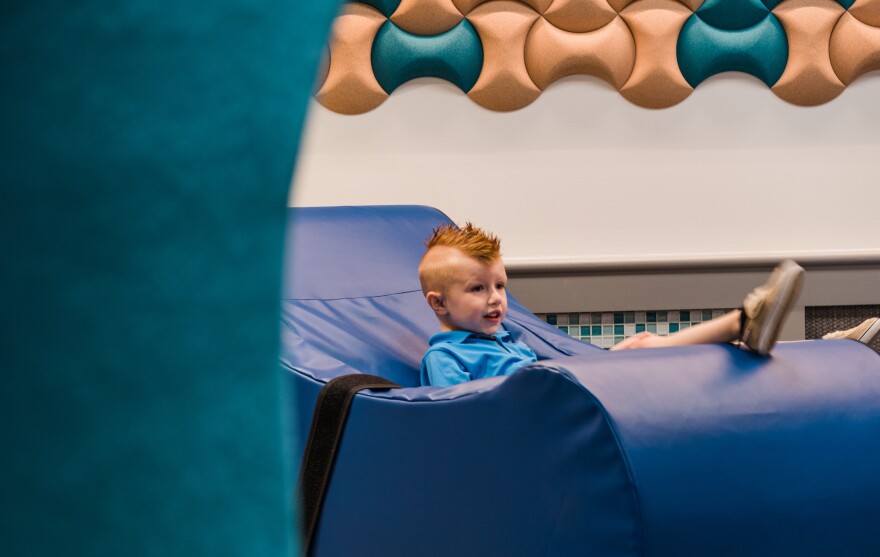Pittsburgh International Airport recently opened a suite of "sensory rooms" inside its airside terminal to help travelers on the autism spectrum decompress from the stress of flying. It's one of a handful of airports internationally that have made changes to be more accommodating to people with special needs.
The 1,500-square-foot space in Pittsburgh is quiet, muting the hustle and bustle from the terminal. Designed with input from people who have autism, it features soft furniture and whimsical lighting features, including colorful bubble towers and multiple soundproof rooms. There's also a room designed to replicate an airplane cabin, complete with airplane seats, trays, windows and overhead compartments, so kids and adults can get used to the feeling of sitting on a plane.

Traveling through an airport can be an anxiety-inducing experience for anyone, but for people on the autism spectrum, the sensory bombardment can make the experience even more intense.
"Between smells and sounds and sights and ... announcements — all of that can be alarming for a lot of typical people," says University of Pittsburgh special education professor Rachel Robertson. "But for people with autism, it could be really terrifying."

The space — dubbed Presley's Place — is named for Presley Rudge, the 4-year-old son of Pittsburgh International Airport worker Jason Rudge. Presley has autism and is considered nonverbal.
Rudge, who operates heavy equipment at the airport, pitched the idea for the sensory room to airport CEO Christina Cassotis more than a year ago. Because of Presley's sensory processing issues, flying commercially was not an option for the family. Rudge first encountered a sensory room at Presley's preschool readiness program, where he said his son felt comfortable.
"After that, I'm sitting at work thinking, I wonder if I'll ever be able to go on vacation," Rudge says. "So I said, 'Why don't we put a sensory room in the airport?' "

There are at least six airports internationally that have such spaces — in Atlanta; Birmingham, Ala.; Myrtle Beach, S.C.; Lehigh Valley, Penn.; Gatwick in the U.K. and Shannon in Ireland — and all vary in size and features. The Pittsburgh team worked with community groups and other Pittsburgh businesses and destinations with sensory rooms to develop its own.
The airport's space is meant for use by both children and adults with autism and other family needs, its designers say.
"The needs are the same for children and adults: If you're on the autism spectrum you need a safe place to go to recharge," says Kerry Mauger, manager of special projects at The Arc, an organization that serves individuals with disabilities and their families. "The Pittsburgh sensory room did very good about having some resources and some spaces that weren't overly kid-like."
Jessica Benham is director of development at the Pittsburgh Center for Autistic Advocacy. She's autistic and says she's pleasantly surprised with how much feedback the airport's team took during the development of the space. She and the center specifically asked, for example, for soft lighting levels instead of fluorescent lights; the latter's hum can be especially bothersome for some people on the spectrum. And there are multiple comfortable, soundproof rooms with doors within the space for an adult who prefers privacy to decompress.
"I was expecting a small room with maybe some bean bags and dimmable lights," Benham says, "because my expectations have been taught to be low. And so to walk into this space that's enormous and serves a variety of needs — I don't even have the words to say what that means." The space also includes a room with a larger changing table, for adults with special needs, for example — a need families say is often overlooked.
The sensory space is open 24 hours a day, and those who want to see the space in advance of a flight are welcome — in 2017, Pittsburgh International Airport became the first major airport in the country to allow people without tickets to enter the terminals to shop, eat or walk loved ones to the gate.
Copyright 2021 90.5 WESA. To see more, visit 90.5 WESA. 9(MDEyMzg0OTk0MDEzODE1MjM2ODE2ODgyMg004))


